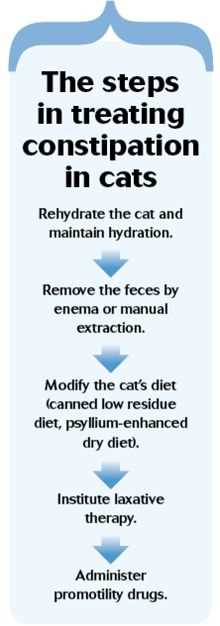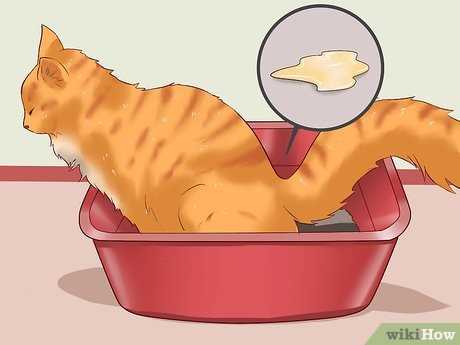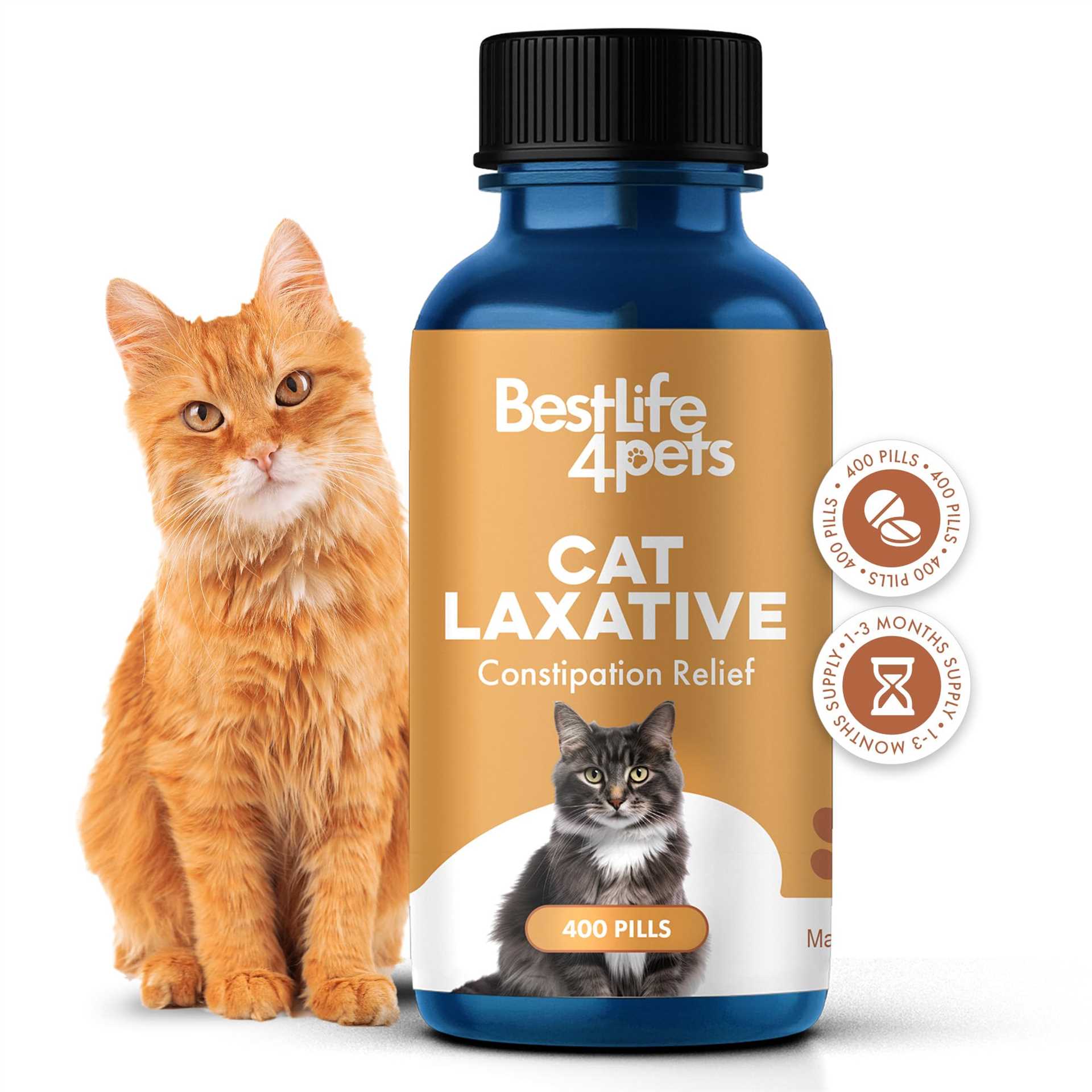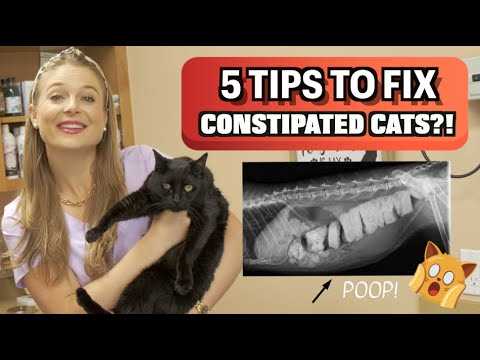Hydration is paramount. Ensure access to fresh, clean water at all times. Dehydration can exacerbate digestive issues, making movement through the intestines more difficult.
Incorporating fiber-rich foods into the diet can significantly aid in alleviating discomfort. Canned pumpkin or specially formulated fiber supplements can be beneficial. A small amount mixed into meals can encourage better bowel function.
Regular physical activity stimulates digestion. Engage in playtime sessions daily to promote movement and help with gastrointestinal motility.
Monitor litter box habits closely. Changes in frequency or consistency can indicate ongoing issues. Consulting a veterinarian for advice tailored to individual needs is advisable if problems persist.
Identifying Signs of Constipation in Your Feline Friend

Recognizing discomfort is key. Watch for these specific indicators:
- Less frequent trips to the litter box.
- Straining or prolonged attempts to eliminate waste.
- Hard, dry stools or absence of stool altogether.
- Unusual grooming behavior, such as excessive licking of the abdomen.
- Loss of appetite or reluctance to eat.
- Signs of discomfort, such as vocalization or hiding.
- Changes in activity level, appearing lethargic or less playful.
Physical Symptoms to Observe

Pay attention to these physical signs:
- Swollen abdomen or noticeable distension.
- Unusual posture, such as crouching or a hunched back.
- Excessive grooming around the rear end.
Behavioral Changes
Behavior often signals distress:
- Increased irritability or agitation.
- Avoidance of the litter box or attempts to eliminate in unusual areas.
- Seeking warmth or hiding in secluded spots.
Being vigilant about these signs can lead to timely interventions, ensuring comfort and health for your furry companion.
Adjusting Diet for Better Digestion
Incorporating more fiber into meals can significantly enhance digestive function. Canned pumpkin, without additives, is a great source; just a spoonful mixed into food can work wonders. Additionally, consider high-quality cat foods specifically designed for digestive health, which often include probiotics.
Hydration Matters
Encouraging water intake is vital. Fresh, filtered water should always be available. Adding water to dry kibble or offering wet food can help maintain hydration levels and support smoother bowel movements.
Portion Control
Feeding smaller, more frequent meals can facilitate digestion. Instead of one or two large portions, try several smaller ones throughout the day. This method not only aids in digestion but can also prevent overeating.
When to Use Over-the-Counter Laxatives for Cats
Over-the-counter laxatives can be beneficial for felines experiencing mild to moderate difficulties with bowel movements. If natural remedies and dietary adjustments fail to provide relief, these products may be a suitable option. It’s crucial to choose laxatives specifically formulated for cats, as human medications can be toxic.
Before administering any laxative, it’s advisable to consult with a veterinarian to confirm the absence of underlying health issues. If the cat shows signs of discomfort, such as excessive straining or lethargy, a vet visit is essential to rule out serious conditions. Laxatives should not be used as a long-term solution; they can disrupt natural bowel function if relied upon excessively.
Monitoring Effects
After administering a laxative, observe the pet closely for any adverse reactions or changes in behavior. If the situation does not improve within a day or two, or if symptoms worsen, professional advice must be sought. Additionally, ensuring access to water is vital, as dehydration can exacerbate digestive problems. A balanced diet, including high-quality wet foods, like the best wet cat food for finicky cats, can support overall digestive health.
Alternatives to Laxatives
While laxatives can provide temporary relief, integrating fiber-rich foods or hydration methods is often more sustainable. Some owners find that adding a small amount of pumpkin or a specially formulated fiber supplement can help. Exploring options like cooked pasta mixed with cat-safe ingredients can sometimes encourage better bowel movement without the need for medication.
Home remedies to relieve feline constipation
One of the best things to try is adding a small amount of canned pumpkin to meals. This natural source of fiber helps with stool formation and can promote regularity. Make sure to use plain pumpkin, not the spiced pie filling.
Hydration is key. Encouraging increased water intake can be done by providing fresh water daily and even considering a pet water fountain. Wet food options can also contribute to better hydration levels.
Gentle physical activity can stimulate bowel movement. Playtime with interactive toys or simple games can get the little one moving, which might help alleviate discomfort.
Herbal solutions
Some herbs like catnip or peppermint can have a mild laxative effect and may encourage better digestion. Fresh catnip can be offered in moderation, or consider herbal teas specifically formulated for pets, ensuring they’re safe and non-toxic.
Massage techniques
A gentle abdominal massage can promote movement in the intestines. Using soft strokes in a circular motion on the tummy can provide comfort and might help ease any blockage. Always monitor for any signs of discomfort during the process.
When to Consult a Veterinarian About Your Feline’s Condition
Immediate veterinary attention is necessary if there are signs of distress or severe discomfort. If straining occurs without any results, or if the situation lasts more than 48 hours, a vet’s evaluation is essential.
Observe for additional symptoms such as vomiting, lethargy, or a swollen abdomen. These may indicate a more serious underlying issue, requiring prompt professional assessment. Additionally, if the feline is exhibiting changes in appetite or behavior, consulting a veterinarian is advisable.
Specific Situations Requiring Urgent Care

In cases where blood appears in the stool or litter box, or if there are sudden changes in litter box habits, a veterinarian’s expertise is crucial. Persistent signs of discomfort, such as vocalization when using the litter box, should not be ignored.
Age and Health Considerations

For senior felines or those with existing health problems, regular veterinary check-ups become even more critical. Age-related issues can complicate digestive health, making veterinary guidance necessary for proper management.






